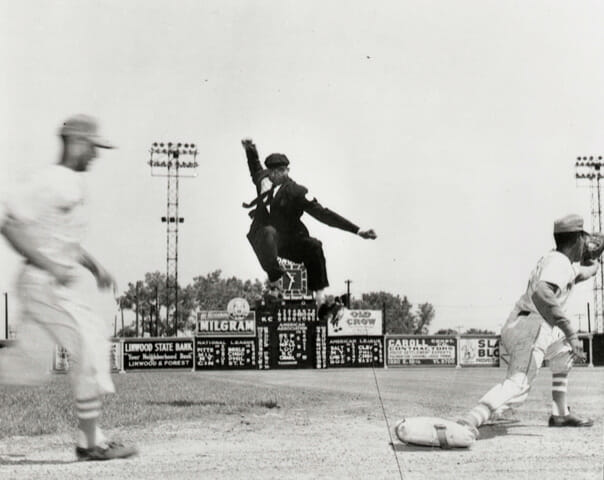Read also:
How to Watch FX Live Without CableHow To Watch AMC Without CableHow to Watch ABC Without CableHow to Watch Paramount Network Without CableQuestlove executive produces an expansive, vital documentary about the rise of Negro baseball leagues.
One of the things I enjoy most about the moviegoing experience is coming out of a film feeling as if I’ve actually learned something that I didn’t know before, or had not even occurred to me in the first place. That’s exactly the feeling that I got while watching Sam Pollard’s The League, a documentary about the history of Negro baseball leagues in America. Going in, I suppose I knew the basics about the subject and could name such key figures as Josh Gibson and Satchel Paige, but Pollard, who previously directed MLK/FBI, and executive producer Questlove delve much deeper, and the results are indeed fascinating.
The film is essentially broken into three historical sections, beginning with the origins of the Negro League. For starters, we learn that in the earliest days of professional baseball in the late 1800s, teams mostly consisted of white players, but did have some Black players on their rosters. That is, until superstar white player and racist “Cap” Anson refused to play integrated teams, leading to the Black players being bounced. After the 1896 Plessy v. Ferguson case allowed for “separate but equal” segregation, Black players formed their own teams and leagues. In 1920, the owners of a number of these teams met and created the Midwest-based Negro National League, followed a couple of years later by the Eastern Colored League. Although lacking the resources of Major League Baseball, these teams became a crucial key component to Black society at the time.
The focus then shifts to the period from the Depression to the beginning of World War II, exploring the impact the leagues had on both the Black community and the game itself, specifically in the emphasis on speedy play and daring fielding over home runs. The final section begins with the end of World War II, when the increased push for racial equality resulted in the re-integration of Major League Baseball, beginning with the 1947 hiring of Negro League star Jackie Robinson by the Brooklyn Dodgers. This opened the floodgates for integration, but inevitably led to the demise of the Negro League, though it would last in some form until the late 50s and include such players as Hank Aaron and Minnie Minoso among their ranks.

Of the three sections, the first and the last are easily the most interesting, offering extensive information about the league’s initial development and inevitable collapse. The latter is especially intriguing because, while the integration of the majors should make for an unquestionably uplifting end, the various historians interviewed by Pollard suggest that things aren’t quite that simple. While the gains inspired by integration cannot be denied, something special and unique to Black communities got lost in the process.
The middle section, by comparison, is a bit flat, as it never really gets into what would seem to be an obvious topic of conversation—what it was like for players in the Negro Leagues to be playing the game they loved, while relegated to an apartheid-like system in which their often eye-popping achievements were barely noticed outside the Black community. That said, this section does feature some fascinating details, such as the story of Effa Manley, the co-owner of the Black Newark Eagles and one of the first women to have a prominent front office role in professional sports.
The only real flaw to The League is that the filmmaking is nowhere near as dynamic as its subject. The combination of archival material and talking head interviews is so familiar that the film might as well already have the PBS logo burned into a corner (MLK/FBI also had to rely on a similar combination of elements but brought a lot more fire to the proceedings). Beyond that, The League is a smart and revelatory look at a piece of American history that offers plenty of information and insight for students of both sports and American history, and which could have the salutary effect of inspiring viewers to delve deeper into the story on their own.
The League premieres in theaters July 7th.